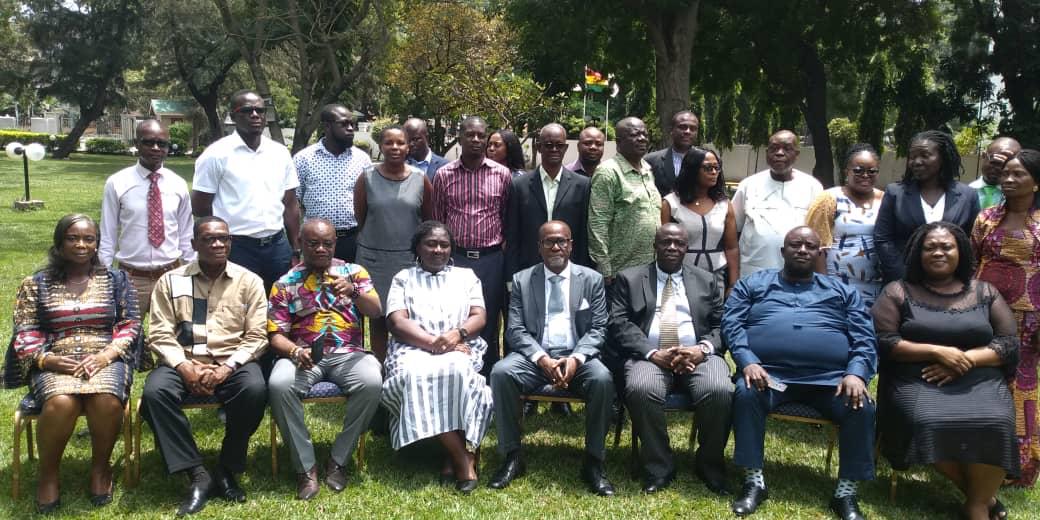NATIONAL LABOUR COMMISSION TRAINS MEMBERS OF THE COMMISSION , REGIONAL COMMMITTES OF THE COMMSSION AND SOME KEY STAFF ON WRITING OF RULINGS, DECISIONS AND BEST DISPUTES RESOLUTION PRACTICES
The National Labour Commission (NLC) in collaboration with the Judicial Training Institute (JTI) organised a three-day training on Writing of Rulings, Decisions and Best Disputes Resolution Practices for Members of the Commission, three Regional Committees of the Commission in the Western, Ashanti and Greater Accra Regions and staff of Industrial Relations and Legal Departments at the Head Office in Accra from 29th -31st July, 2019 at Cleaver House in Accra.
The training program designed and facilitated by the Judicial Training Institute (JTI) was aimed at capacity building of participants to help the Commission to effectively discharge its mandate under the Labour Act, 2003 (Act 651).

The aim of the training was to provide skills and knowledge to equip participants with understanding on the objectives of Negotiation, Mediation, Arbitration and Compulsory Arbitration because as a quasi- judicial body, the Commission in its adjudicating function applies and promotes Alternative Dispute Resolution Mechanisms (ADR) as an effective tool in managing, addressing and resolving workplace differences.
His Lordship, Justice Dennis Adjei, Justice of the Court of Appeal and Director of the Judicial Training Institute (JTI) took the participants through Constitutional and Statutory Rights and Overview of Conflicts as well as General Overview of the Alternative Dispute Resolution Act, 2010, (Act 798). The focus was on:
- Interpretation of Matters of National or Public Interest
- Enforcement and interpretation of the Constitution
- Environment
- Matters that cannot be settled under the Alternative Dispute Resolution Act, 2010 (Act 798).
He also presented on Excess of Jurisdiction, where he admonished that Irregularity, Illegality, Irrationality and Procedural Impropriety should be avoided during Arbitration proceedings. According to him, evidence is relevant if it makes the existence or non- existence of a fact more probable and urged that Mediators and Arbitrators must not impose their opinion on a witness.
Ms. Diana Asonaba, a Legal Practitioner, Law Lecturer and ADR expert co- facilitated the training. She took participants through key areas such as:
- Different types of conflicts
- Types of ADR
- Attributes of ADR
- Advantages of ADR
- ADR under Act 651
- Role of the Mediator
- Powers of the Mediator
- The positivist Judge
She urged participants to develop the skills of Hard and Soft Negotiations in settling industrial disputes. She advised that Mediators and Arbitrators must be optimistic during Award Writing or Making Rulings.
At the end of the three-day training, Mr. Andrew Kwabena Asamoah, Chairman of the Commission on behalf of the Commission thanked the JTI for the exposure and urged participants to work hard and deliver justice fairly and equitably.
Participants expressed their joy and appreciation to the Judicial Training Institute (JTI) and the Commission for taking such an important step, describing the session as very educative and enlightening.
